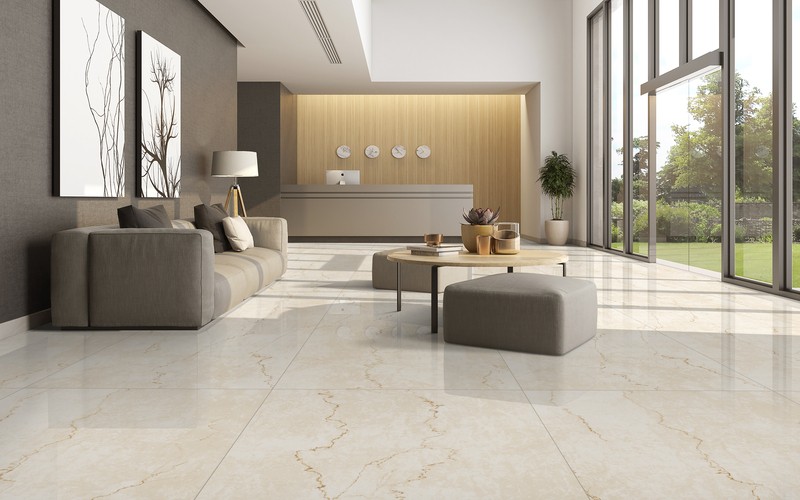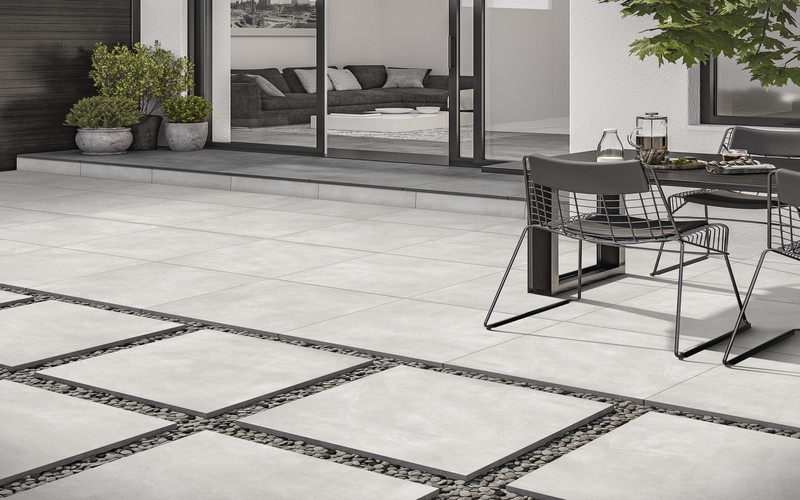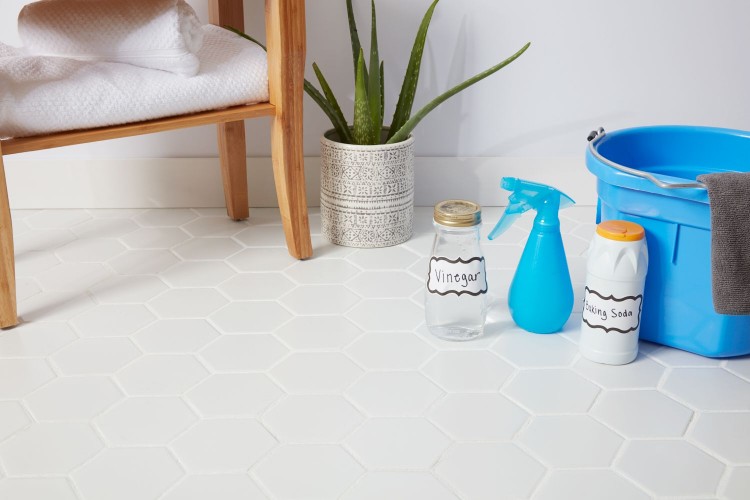what are the best bathroom floor tiles ?
- News
- 26 Oct 2023

When it comes to designing or renovating a bathroom, one of the most critical decisions you'll make is selecting the right flooring material. Bathroom floors must be both functional and visually appealing, and this is where the choice of tiles comes into play. With a plethora of options available in the market, how do you determine the best bathroom floor tiles for your specific needs and preferences? In this comprehensive guide, we'll explore the key factors to consider and highlight some of the top choices to help you make an informed decision.
The Importance of Bathroom Flooring
Bathroom flooring serves as the foundation for the entire space. It not only supports the overall aesthetic but also plays a crucial role in terms of practicality and functionality. Here are some of the reasons why selecting the best bathroom floor tiles is essential:
1. Moisture Resistance:
- Bathrooms are inherently humid environments. The right floor tiles should be able to withstand moisture and prevent water damage, ensuring long-term durability.
2. Safety:
- Bathrooms can be slippery, especially when wet. Choosing tiles with slip-resistant properties is essential to prevent accidents and ensure safety.
3. Ease of Cleaning:
- Bathrooms can get dirty quickly. Tiles that are easy to clean and maintain will help keep your bathroom looking fresh and hygienic.
4. Aesthetics:
- The choice of tiles greatly influences the overall look and feel of your bathroom. The right tiles can enhance the design and create a visually appealing space.
5. Resale Value:
- Quality bathroom flooring can increase the resale value of your home. Potential buyers often pay close attention to the condition and appearance of bathrooms.
Factors to Consider When Choosing Bathroom Floor Tiles
To select the best bathroom floor tiles, you need to consider several important factors:
1. Water Resistance:
- This is perhaps the most critical factor. Bathroom floors are constantly exposed to water, so opt for tiles that are highly water-resistant or even waterproof.
2. Slip Resistance:
- Safety is paramount. Look for tiles with a textured surface or a slip-resistant rating to reduce the risk of accidents, especially in wet areas.
3. Durability:
- Bathrooms receive heavy foot traffic and are subject to wear and tear. Choose tiles that are durable and can withstand daily use without showing signs of damage.
4. Maintenance:
- Consider how easy it is to clean and maintain the tiles. Tiles with a smooth, non-porous surface are often easier to clean and resist staining.
5. Style and Aesthetics:
- Think about the design and style you want to achieve. Tiles come in various colors, patterns, and textures, allowing you to create your desired look.
6. Budget:
- Determine your budget for the project. While there are tiles available at various price points, it's essential to strike a balance between quality and cost.
7. Installation:
- Consider the installation process. Some tiles may require professional installation, while others are more DIY-friendly.
8. Comfort:
- Bathroom floors can be cold in the mornings. If comfort is a priority, consider underfloor heating options or choose tiles that are compatible with radiant heating systems.
Top Bathroom Floor Tile Options
Now that you understand the key factors to consider let's explore some of the best bathroom floor tile options:
1. Ceramic Tiles:
- Ceramic tiles are a popular choice for bathroom floors. They are affordable, durable, and available in a wide range of styles and colors. When properly glazed, they are also highly water-resistant.
2. Porcelain Tiles:
- Porcelain tiles are a type of ceramic tile known for their exceptional durability and water resistance. They are an excellent choice for bathrooms, offering a sleek and modern look.
3. Natural Stone Tiles:
- Natural stone tiles such as marble, granite, travertine, and slate can add a touch of luxury to your bathroom. While they are beautiful, they require sealing to maintain water resistance.
4. Vinyl Tiles:
- Vinyl tiles are budget-friendly, easy to install, and resistant to moisture. They come in various styles, including designs that mimic natural stone or wood.
5. Terrazzo Tiles:
- Terrazzo tiles have made a comeback in recent years. They offer a unique and stylish look with a speckled appearance. When sealed properly, they are suitable for bathroom floors.
6. Cement Tiles:
- Cement tiles come in intricate patterns and bold colors, making them a statement piece for your bathroom floor. They are durable and can be sealed for added water resistance.
7. Glass Tiles:
- Glass tiles can add a touch of elegance and color to your bathroom. They are non-porous, making them resistant to water and stains. However, they can be slippery when wet.
8. Laminate Tiles:
- Laminate tiles are a cost-effective option that mimics the look of hardwood or stone. While they are not entirely waterproof, they can be a suitable choice for bathrooms with proper precautions.
Best Practices for Bathroom Tile Installation
Regardless of the type of tile you choose, proper installation is key to a successful bathroom floor. Here are some best practices:
1. Ensure Proper Subfloor Preparation:
- The subfloor should be clean, dry, level, and structurally sound before tile installation.
2. Use High-Quality Adhesive:
- Invest in a high-quality adhesive that is suitable for the type of tile you are installing.
3. Seal Grout Lines:
- Seal the grout lines to prevent moisture infiltration, staining, and mold growth.
4. Include Expansion Joints:
- Expansion joints should be placed around the perimeter of the room and at transitions to prevent tile cracking due to temperature changes.
5. Ensure Proper Sloping:
- The floor should be sloped slightly towards the drain in wet areas like showers to facilitate water drainage.
6. Use Professional Installers:
- Consider hiring professional tile installers, especially for complex patterns or materials like natural stone.
Maintenance Tips for Bathroom Floor Tiles
To keep your bathroom floor tiles looking their best, follow these maintenance tips:
1. Regular Cleaning:
- Sweep or vacuum regularly to remove dirt and debris. Clean with a mild detergent and water as needed.
2. Prompt Spill Cleanup:
- Clean up spills immediately to prevent staining, especially with porous materials like natural stone.
3. Avoid Harsh Cleaners:
- Use gentle, pH-balanced cleaners to avoid damaging the tile or grout.
4. Regular Grout Maintenance:
- Inspect and reseal grout lines as needed to maintain water resistance.
5. Use Rugs and Mats:
- Place rugs or mats in high-traffic areas or near the shower to prevent excess water from reaching the floor.
In Conclusion
Selecting the best bathroom floor tiles involves careful consideration of factors such as water resistance
- bathroom floor tiles
- best tiles for bathrooms
- bathroom flooring options
- tile selection guide
- bathroom tile durability














